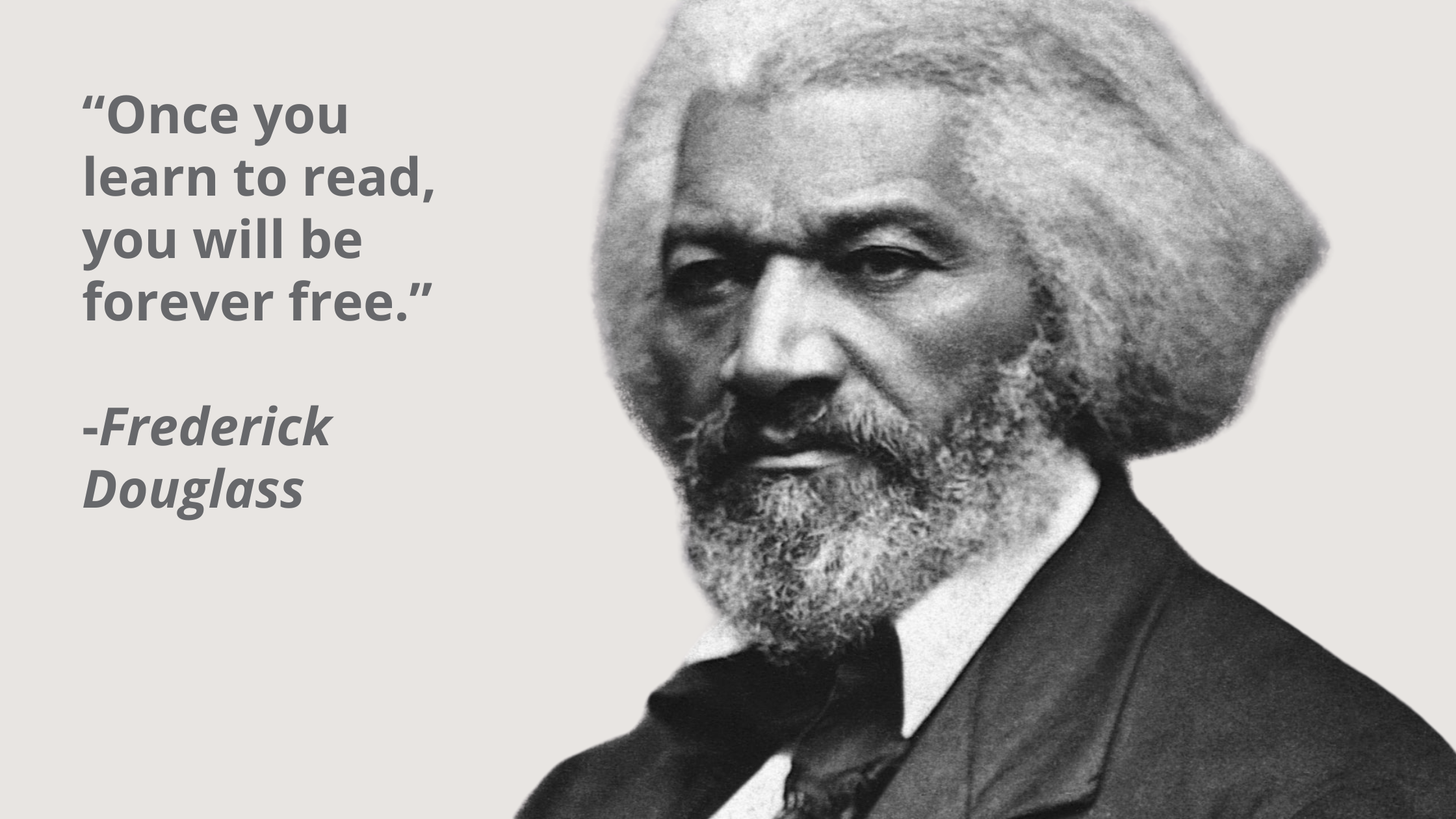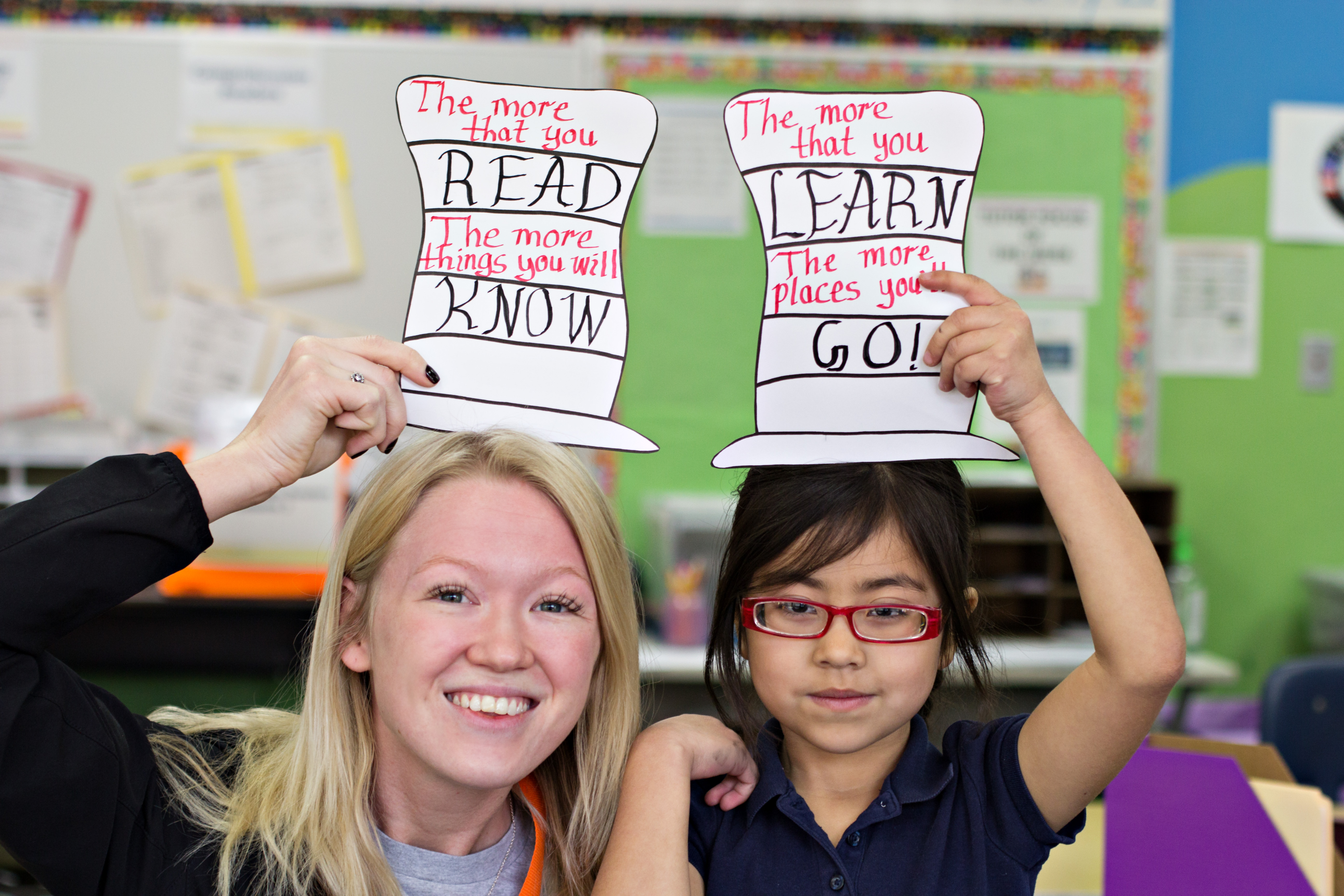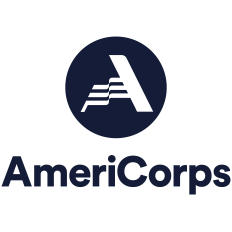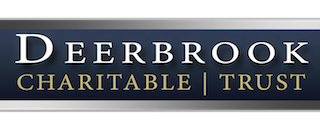March 8, 2024
Frederick Douglass and Reading Partners: A legacy and mission go hand in hand

Today, Frederick Douglass’ legacy is one of advocacy and education—he will forever be associated with social reform, the abolishment of slavery, and upholding literacy as a tool to fight against oppressors and to exercise one’s own agency. His connection to Baltimore is part of that legacy, using the city as a backdrop during his journey from enslaved person to empowered orator, and solidifying him as one of many larger-than-life historical figures from the area.
Frederick Douglass is also one of many historical figures whose life, work, and legacy are representative of our values at Reading Partners and our belief that learning to read is a civil right. Douglass fought against the institution of slavery during his day, an institution integral to the United States’ longstanding history of racism that created inequities, predictable outcomes, and enduring barriers for people of color.
Who was Frederick Douglass?
Frederick Douglass, born in Talbot County, Maryland, in what is believed to be 1818, was an abolitionist who managed to escape slavery. After many formative events in his life, such as learning the alphabet through the wife of his slave master and fighting back against Edward “Slave-Breaker” Covey, Douglass became a runaway slave at the age of 20. He found solace in New York and eventually Massachusetts and used his newfound freedom to become a prominent orator, author, and voice to radicalize enslaved Black people and mobilize abolitionist sympathizers.

Frederick Douglass monument in Frederick Douglass-Isaac Myers Maritime Park in Baltimore (Source)
The pursuit of literacy
One of the many formative moments in Frederick Douglass’s life came when Sophie Auld, the wife of his slavemaster, Hugh Auld, taught him the alphabet at the age of 12.
Upon learning of Sophie’s lessons, Auld described these lessons as unsafe and forbade his wife from continuing. “He [Douglass] would at once become unmanageable, and of no value to his master,” said Auld. He claimed that literacy would do neither the slave, nor the slave owner, any good and that any realization of one’s own enslavement would make the enslaved person “discontented and unhappy.”
The purposeful illiteracy Mr. Auld had hoped to instill in Douglass only acted as motivation for him to continue learning how to read. As Douglass later reflected, “from that moment, I understood the path from slavery to freedom.”

Frederick Douglass after 1884, with his second wife Helen Pitts Douglass (sitting). The woman standing is her sister, Eva Pitts. Unknown creator. Public domain, via Wikimedia Commons.
Literacy as a weapon of defense
Another pivotal point in Frederick Douglass’s life came during his time with Edward Covey. During his adolescence, Douglass had gained the reputation of being an unreliable, unruly slave. Hugh Auld knew Douglass had been routinely defying him, so he sent Douglass to Covey, the famous “Slave Breaker,” someone who would ensure Douglass remained a submissive, illiterate slave.
Douglass was routinely beaten for the most minor of mistakes at Covey’s farm. Once, he walked 5 hours after a severe beating to report to Auld how he was being treated, knowing that what he was being subjected to was wrong. Auld did not believe him, though, and promptly sent Douglass back to Covey, who would surely abuse him for leaving without permission. In a fight that lasted over two hours, Douglass bested Covey, showing him that he was not to be disrespected anymore.
Literacy gave Douglass the ability to articulate not only how he was being treated but that the treatment was unjust, and gave him the ability to exercise his autotomy and fight back against his oppressors. He famously said: “This battle with Mr. Covey was the turning point in my life as a slave. It rekindled in my breath the smoldering embers of liberty. I was nothing before. I was a man now.”
Literacy as a tool of emancipation

In his autobiography, Douglass recounts not only his life as a slave and his journey to becoming free but also the systems upholding slavery and how education would be instrumental in overthrowing slavery as an institution.
According to Riya Shankar, “As an illiterate slave, Douglass felt he was completely at the mercy of his master, his only knowledge of the world coming from the man who had absolute power over him.” Literacy not only gave him the ability to realize that he was enslaved, but it also dramatically changed his perception of the world as he learned more about the atrocities of slavery.
Douglass came to the conclusion that knowledge, though sometimes hard to bear, was the only route to achieving literacy and, thus, freedom. Education would be both beneficial and necessary for all slaves in order to organize an abolitionist movement and become citizens who were able to seek out information and become aware of their rights. Douglass would act on this with the creation of a Sabbath School for Black students, where he taught formerly enslaved people how to spell, read, and write.
“Their [slaves’] minds had been starved by their cruel masters. They had been shut up in mental darkness.”
Frederick Douglass: Beyond the book
 Frederick Douglass’s life was rife with hardship, trials, and tribulations. One hundred and twenty-nine years after his death, he is remembered as a staunch advocate for education and a symbol of Black resistance. And while slavery has been abolished for even longer, racism and anti-Blackness have infiltrated almost every system and institution in our nation, including our education system.
Frederick Douglass’s life was rife with hardship, trials, and tribulations. One hundred and twenty-nine years after his death, he is remembered as a staunch advocate for education and a symbol of Black resistance. And while slavery has been abolished for even longer, racism and anti-Blackness have infiltrated almost every system and institution in our nation, including our education system.
Frederick Douglass statue at the University of Maryland (Source)
Reading Partners exists to uproot these deeply ingrained educational obstacles, and we know that providing all students with access to quality literacy support is an essential step in the pursuit of social justice. Through our commitment to education equity, the legacy of Frederick Douglass can live on, and future generations can count on being informed, self-determining citizens.
One blog post cannot aptly summarize Douglass’ legacy and his core belief about the promise of literacy to empower the most marginalized citizens. Over the next year, Reading Partners Baltimore will dive into this legacy and explore how literacy impacts every facet of one’s life. We think Frederick Douglass would agree.












